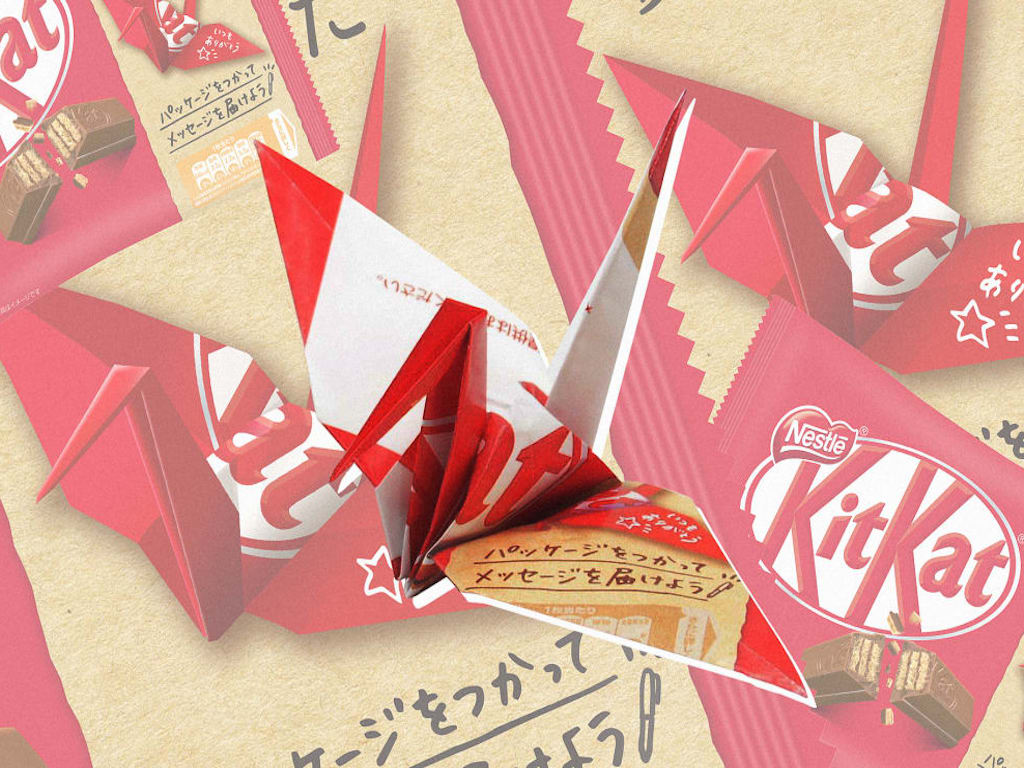2 Mins Read
In order to tackle global plastic waste, Nestlé Japan has announced that it is launching recyclable paper packaging for KitKat products, which comes with instructions to fold origami cranes. With Japan being the largest market for KitKats in the world, the food giant’s packaging upgrade is set to eliminate an estimated 380 tonnes of plastic annually from landfills and oceans.
While KitKat wrappers might seem like a small deal to some people, they contribute to the world’s plastic pollution crisis. Millions of tiny bits of plastic packaging have now accumulated in our landfills and are polluting our oceans. In 2015, worldwide production of plastics stood at 381 million tonnes, with the packaging industry accountable for 141 million tonnes. What is clear is that global single-use plastic and our obsession with convenience is having devastating impacts on our planet – according to a report from the Ellen McArthur Foundation, plastic could outweigh fish in the sea by 2050. This year, a plethora of scientific studies revealed the depth of our plastic pollution crisis, with microplastics found literally everywhere from rural mountaintops to tap water in cities and even in drops of rain.
In a bid to alleviate global plastic waste, Nestlé Japan has launched versions of KitKat wrapped in recyclable origami paper packaging across all five top-selling flavours (including original, matcha, less-sweet version) both a boon to the planet and a nod to Japanese culture, where KitKats enjoy an almost cult status. The company estimates that this will save as much as 380 tonnes of plastic from ending up in landfills and oceans every year. The new version will come with instructions on how to make origami paper cranes too, as a part of their campaign to encourage customers to give the mini wrappers a second life, instead of just throwing them away.
This new campaign comes as a part of Nestlé Japan’s dedication to switch to only using completely recyclable and reusable packaging by 2025. The confectionary giant has also recently announced plans to use only 100% responsibly sourced palm oil by 2020, and comply with the criteria outlined in the industry-wide Roundtable on Sustainable Palm Oil (RSPO).
Nestlé is joining on the growing corporate trend to tackle plastic waste. In the past months, several hotel chains from Mariott to Intercontinental have pledged various environmental commitments, from ditching single-use plastic straws to removing mini plastic amenities in bathrooms. Most recently, Amazon India announced their bid to phase out single-use plastic packaging in their deliveries by 2020.
Lead image courtesy of Nestlé Japan.




